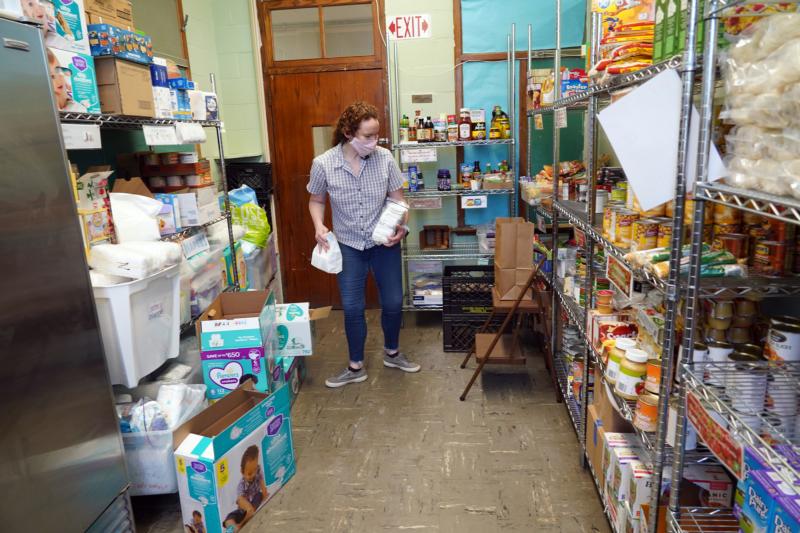WASHINGTON (CNS) — Congress needs to remember the needs of “the poor, the vulnerable and people on the margins” when considering additional pandemic economic relief packages, said the chairman of the U.S. Conference of Catholic Bishops’ Committee on Domestic Justice and Human Development.
“The focus should be on those most in need” in federal stimulus packages “to offer them some hope and assistance in desperate circumstances,” said Archbishop Paul S. Coakley of Oklahoma City.
“Since early April, some of my brother bishops and I have sent five letters to express this touchstone principle to Congress and its various committees,” he said in a May 22 statement.
[hotblock]
The U.S. bishops have highlighted several issues they have urged lawmakers to address, such as: food security and housing; protections for the unborn; access to affordable health care and racial and ethnic disparities in health outcomes; assistance for the poor and unemployed; care for migrants and refugees; safety for detainees and the incarcerated; education; international assistance and debt relief; and help for charities serving vulnerable populations.
Archbishop Coakley and the chairmen of several other USCCB committees, including education, migration, pro-life activities, religious liberty, communications and international justice and peace signed letters April 9 and May 7 that went to various House and Senate committee chairman calling attention to these issues.
“Additional needs have emerged,” Archbishop Coakley said May 22, “such as sufficient protective equipment for all essential workers; protection of familial well-being and integrity; additional research on the link between air pollution and coronavirus health outcomes; and the need to address disruptions to the food supply chain and its impact on farmers and farmworkers, food waste and public health.”
The archbishop’s statement followed his March 12 and March 28 statements issued ahead of votes on federal economic stimulus packages, such as the $2.2 trillion Coronavirus Aid, Relief and Economic Security Act, or CARES Act. In concert with this measure, Congress approved the Paycheck Protection Program, setting aside $349 billion for Small Business Administration loans.
Another emergency funding bill called the Health and Economic Recovery Omnibus Emergency Solutions Act, or HEROES Act, was passed by the House mainly along party lines May 15, but the Senate has not taken up the measure.
Archbishop Coakley said the U.S. bishops welcomed the commission created by Pope Francis to confront the challenges the world is facing in battling the coronavirus pandemic and what it will inevitably face in its aftermath. The pope named Cardinal Peter Turkson, prefect of the Dicastery for Promoting Integral Human Development, to head the commission.
“(We) will continue our advocacy in the same mode as this critical work for the common good continues,” the archbishop said.
PREVIOUS: Minnesota archbishop calls for justice in death of George Floyd
NEXT: Buffalo initiative will assess diocesan resources, ‘bring about renewal’



Share this story